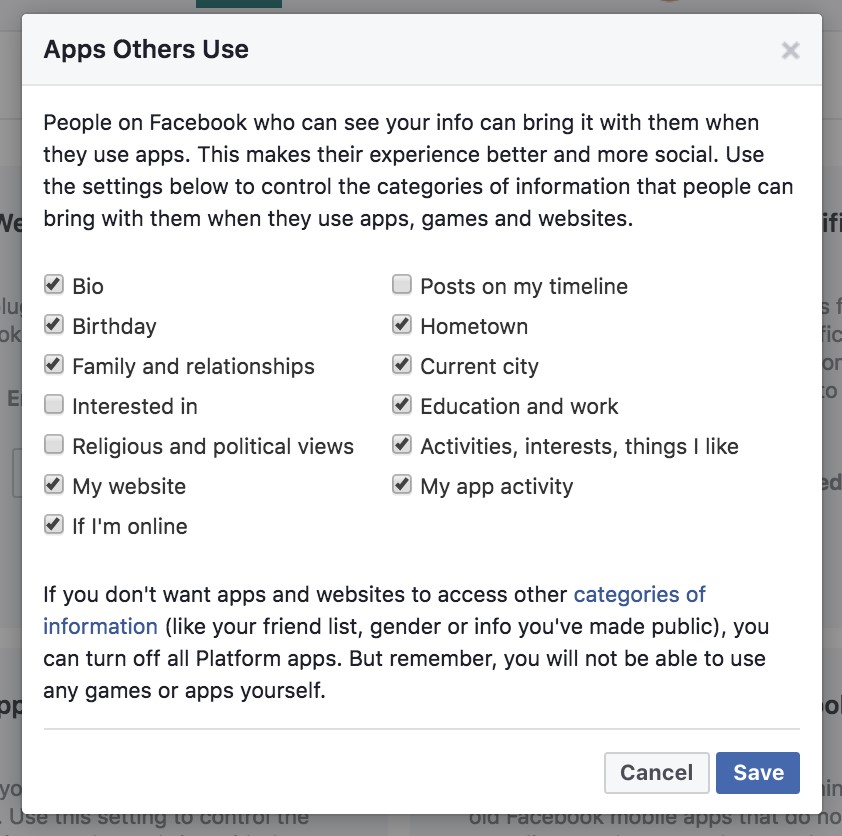Data is a valuable commodity given up far too willingly for convenience when signing up to ‘free’ apps and platforms.

How often do you read the pages and pages of terms and conditions before ticking the ‘I agree’ on these social media sites? A 2017 Deloitte survey of 2,000 US consumers found that over 90% accepted legal terms and conditions without reading them.
This week’s Facebook ‘data breach’ in which Cambridge Analytica is accused of using 50 million Facebook member’s data to influence the US election, has only intensified the growing theme of #techlash against the FAANG* ‘tech giants’. (FB denies that it is a data breach because no users’ accounts were actually ‘hacked’).
*Facebook, Amazon, Apple, Netflix and Google.
It also highlights the depth of the debate that ‘data is the new oil’ because unless we are buying the product (online), we are indeed ‘the product’. This confirms the notion that we are continually emitting data more like a gas than oil, as every click, like and share builds a psychological profile of us that can be freely used for profit by the big tech companies.
The upcoming GDPR regulation in May 2018 initiated by the EU will undoubtedly help, by demanding more consent and accountability requirements from companies who gather our personal data and increase the level of transparency. See our previous blog post: A quick GDPR summary: Ignore it at your peril! This legislation will only be applicable to the UK and EU.
It is imperative that we fully understand the governing paradigm: we are simply the ‘subjects’ of the ‘controllers’ who collect our data in the eyes of the law! In this respect we all have a responsibility to be extra diligent with our data and more protective of our own digital footprint.
What is a digital footprint, and have you checked yours recently?
A data trail resulting from a user’s online activities can easily be traced back to them. However, a passive digital footprint (digital shadow) manifests when data is collected without the user knowing, usually consisting of unintentionally-exposed personal or technical information that can leave an individual or (business) vulnerable.
If someone was to search your name online what would they learn about you? Have you ever ‘googled’ yourself? All internet activity will result in the generation of a digital footprint and the resulting data is stored in the cloud and on the hard drives of centralized web servers globally. This data is often used to tailor the content (by way of algorithms) of your social media accounts or sold to third parties as a valuable source for marketing.
A good digital footprint is of paramount importance for both individuals and companies to positively reflect their reputation and expertise but also to protect against cyber-attacks and identity theft.
Valuable information that is inadvertently made available online can seriously damage a company brand, put key employees at risk or worse still facilitate hostile groups finding weak points that could lead to targeted cyber-attacks.
As employers increasingly make use of internet search engines to locate and evaluate online information about potential employees, it is essential for individuals to capitalize on this by building a positive online presence that showcases their skills and expertise.
Companies also need to actively manage their digital footprint by ensuring that all employees and associated members are aware of their individual roles as Company representatives, and that their subsequent activities can add to their digital footprint. These can potentially promote or negatively affect their brand.
Digital Footprint Management
Our lives have become inherently more digital, therefore managing our digital footprint has become a laborious but extremely essential task. Old and unused accounts can pose a real threat to our online security by leaving fragmented information that can easily be pieced together and used for malicious purposes.
Deseat.me is a useful web tool that enables you to locate all your internet accounts and delete your digital self, history and footprint completely. Furthermore, Digi.me a personal data exchange platform, aims to be the enabler of the Internet of Me (IoM) allowing users to not just be the core of their data but also to be in control of it. Users can download an encrypted version of their social media life to their personal cloud storage and combine their social networks, giving them the freedom to choose how they share their data and to which businesses.
Whilst it is impossible not to ‘emit’ data when using the internet, there are ways to protect and limit what you share. A recent article from Electronic Frontier Foundation shared by VentureBeat shows how you can completely opt out of Facebook’s platform data sharing (this disables all platform Apps via Facebook’s API). If this isn’t a suitable option, they also show you how to limit the amount of personal information that is available by apps that other people can see.
Found in the Facebook Settings: Menu > Apps, click edit under ‘Apps Others Use:

Furthermore, listed below are some useful tips for managing your digital footprint:
• Use strong passwords that are different for every site you visit
• Google yourself - check a variety of different search engines periodically to see what your online digital identity looks like. Be sure to remove or request the removal of anything you are uncomfortable with
• Update new software when it becomes available on your devices as malware is designed to mine your digital footprint for personal information
• Review and optimise your privacy settings. Are you sharing information on Apps that you are not aware of? Even when not in use! e.g. your location
• Spring clean your social media accounts by removing unnecessary personal information, photos and delete unwanted apps
• Review your emails accounts and spring clean accordingly as this all adds to your digital trail. Set up a designated email to use for less secure websites that require your contact information. This will reduce the chance of tracking back to your primary accounts
With the big tech firms failing to properly protect valuable entrusted information it has become apparent that users must take responsibility and ensure that their digital profiles are properly configured.
Sensible spring cleaning of your digital profile and being more diligent with what you share will help reduce the negative effects on your digital footprint. Think twice before you post (would you be happy if your comment/post appeared on the front page of a newspaper?) Nothing can be truly erased once on the web, so be canny before your click!
Natasha Evans
Sources
https://www2.deloitte.com/content/dam/Deloitte/us/Documents/technology-media-telecommunications/us-tmt-2017-global-mobile-consumer-survey-executive-summary.pdf
http://uk.businessinsider.com/deloitte-study-91-percent-agree-terms-of-service-without-reading-2017-11
https://www.economist.com/news/briefing/21735026-which-antitrust-remedies-welcome-which-fight-techlash-against-amazon-facebook-and
https://mashable.com/2018/03/13/spring-cleaning-digital-footprint-cybersecurity/#VSzA4qQ4mZqA
https://www.campaignlive.co.uk/article/dont-fear-techlash-use-wisely/1458739
https://www.ft.com/content/f369e670-2ac3-11e8-9b4b-bc4b9f08f381
https://www.fastcompany.com/40533094/how-to-tidy-up-your-digital-footprint-before-your-first-job-search
https://www.ft.com/content/43bc6d18-2b6f-11e8-97ec-4bd3494d5f14
http://read.bi/2DIIdVZ